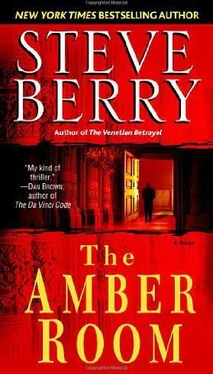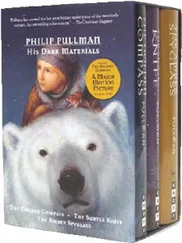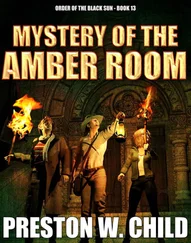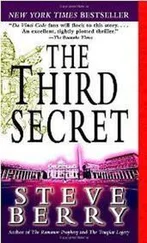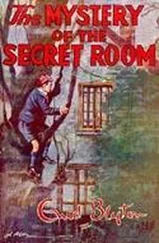Paul watched her carefully. She seemed to be holding up well. Around two o'clock, she disappeared upstairs. He found her in their former bedroom, alone. It'd been a while since he was last inside.
"You okay?" he asked.
She was perched on the edge of the four-poster bed, staring at the carpet, her eyes swollen from crying. He stepped closer.
"I knew this day would come," she said. "Now they're both gone." She paused. "I remember when Mama died. I thought it was the end of the world. I couldn't understand why she'd been taken away."
He'd often wondered if that was the source of her antireligious beliefs. Resentment for a supposed merciful God who would so callously deprive a young girl of her mother. He wanted to hold her, comfort her, tell her he loved her and always would. But he stood still, fighting back tears.
"She used to read to me all the time. Strange, but what I remember most was her voice. So gentle. And the stories she'd tell. Apollo and Daphne. Perseus' battles. Jason and Medea. Everybody else got fairy tales." She smiled weakly. "I got mythology."
The comment was one of the rare times she'd ever mentioned anything specific about her childhood. The subject was not one she dwelled upon, and she'd made it clear in the past that she considered any inquiry an intrusion.
"That why you read the same kind of stuff to the kids?"
She wiped the tears from her cheek and nodded.
"Your father was a good man. I loved him."
"Even though you and I didn't make it, he always thought of you as his son. Told me he always would." She looked at him. "It was his fondest wish that we get back together."
His too, but he said nothing.
"Seems all you and I ever did was fight," she said. "Two stubborn people."
He had to say, "That's not all we did."
She shrugged. "You always were the optimist in the house."
He noticed the family picture angled atop the chest of drawers. They'd had it taken a year before the divorce. He, Rachel, and the kids. Their wedding picture was also still there, like the one downstairs in the foyer.
"I'm sorry about last Tuesday night," she said. "What I said when you left. You know how my mouth can be sometimes."
"I shouldn't have meddled. What happened with Nettles was none of my business."
"No, you're right. I overreacted with him. My temper gets me into more trouble." She brushed away more tears. "I've got so much to do. This summer is going to be difficult. I wasn't planning on a contested race this time. Now this."
He didn't voice the obvious. Maybe if she exercised a little diplomacy the lawyers appearing before her wouldn't feel so threatened.
"Look, Paul, could you handle Dad's estate? I just can't deal with that right now."
He reached out and lightly squeezed her shoulder. She did not resist the gesture. "Sure."
Her hand went up to his. It was the first time they'd touched in months. "I trust you. I know it'll get done right. He would have wanted you to handle things. He respected you."
She withdrew her hand.
He did, too. He started thinking like a lawyer. Anything to take his mind away from the moment. "You know where the will is?"
"Look around the house. It's probably in the study. It might be in his safe deposit box at the bank. I don't know. He gave me the key."
She walked over to the dresser. Ice Queen? Not to him. He recalled their first encounter twelve years ago at an Atlanta Bar Association meeting. He was a quiet first-year associate at Pridgen & Woodworth. She was an aggressive assistant district attorney. Two years they dated until she finally suggested they marry. They'd been happy in the beginning and the years passed quickly. What went wrong? Why couldn't things be good again? Maybe she was right. Perhaps they were better friends than lovers.
He hoped not.
He accepted the safe deposit key she offered and said, "Don't worry, Rach. I'll take care of things."
He left Rachel's house and drove straight to Karol Borya's. It was less than a half-hour journey through a combination of busy commercial boulevards and hectic neighborhood streets.
He parked in the driveway and saw Borya's Oldsmobile nestled in the garage. Rachel had given him the house key, and he unlocked the front door, his eyes immediately drawn to the foyer tiles, then up the staircase spindles, some splintered in half, others jutting at odd angles. The oak steps bore no evidence of an impact, but the police said the old man slammed into one and then tumbled to his death, his eighty-one-year-old neck breaking in the process. An autopsy confirmed the injuries and their apparent cause.
A tragic accident.
Standing in the stillness, an odd combination of regret and sadness shuddered through him. Always before he'd enjoyed coming over, talking art and the Braves. Now the old man was gone. Another link to Rachel severed. But a friend was gone, too. Borya was like a father to him. They'd become especially close after his parents were killed. Borya and his father had been good friends, linked by art. He now remembered both men with a pang in his heart.
Good men gone forever.
He decided to take Rachel's advice and first look upstairs in the study. He knew there was a will. He'd drafted it a few years back and doubted that Borya would have gone to anyone else to modify the language. A copy was certainly back at the firm in the retired files and, if necessary, he could use that. But the original could be worked through probate faster.
He climbed the stairs and searched the study. Magazine articles lay strewn on the club chair, a few scattered on the carpet. He shuffled through the pages. All concerned the Amber Room. Borya had spoken of the object many times through the years, his conviction the words of a White Russian who longed to see the treasure restored to the Catherine Palace. Beyond that, though, he hadn't realized the man's rather intense interest, apparently enough to collect articles and clippings dating back thirty years.
He rifled through the desk drawers and filing cabinets and found no will.
He scanned the bookshelves. Borya loved to read. Homer, Hugo, Poe, and Tolstoy lined the shelves, along with a volume of Russian fairy tales, a set of Churchill's Histories , and a leather-bound copy of Ovid's Metamorphoses . He seemed to also like southern writers, works by Flannery O'Connor and Katherine Anne Porter formed part of the collection.
His eyes were drawn to the banner on the wall. The old man had bought it at a kiosk in Centennial Park during the Olympics. A silver knight on a rearing horse, sword drawn, a six-ended golden cross adorning the shield. The background was blood red, the symbol of valor and courage, Borya had said, trimmed in white to embody freedom and purity. It was the national emblem of Belarus, a defiant symbol of self-determination.
A lot like Borya himself.
Borya had loved the Olympics. They'd gone to several events, and were there when Belarus won the gold in women's rowing. Fourteen other medals came to the nation--six silver and eight bronze, in discus, heptathlon, gymnastics, and wrestling--Borya proud of every one. Though American by osmosis, his former father-in-law was without a doubt a White Russian at heart.
He retreated downstairs and carefully searched the drawers and cabinets, but found no will. The map of Germany was still unfolded on the coffee table. The USA Today he'd given Borya was there, too.
He wandered into the kitchen and searched on the off chance that important papers were stashed there. He once handled a case where a woman stored her will in the freezer, so on a lark, he yanked open the refrigerator's double doors. The sight of a file angled beside the ice maker surprised him.
He removed and opened the cold manila folder.
More articles on the Amber Room, dating back to the 1940s and 1950s, but some as recent as two years ago. He wondered what they were doing in the freezer. Deciding that finding the will was, at the moment, more important, he decided to keep the folder and head for the bank.
Читать дальше
